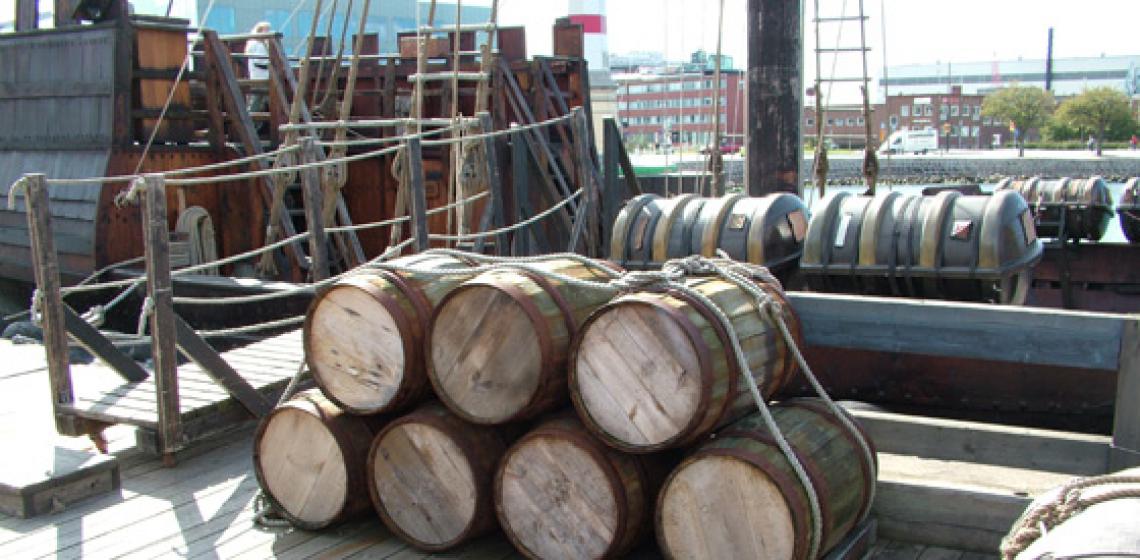
The Koggmuseet is situated near the city centre of Malmö, where in the past the high speed ferry left to Copenhagen. Since 2000, when there is a bridge connection across the Öresund, this ferry harbour is unnecessary anymore and traffic between Sweden and Denmark has been abundant.
This museum was all about late medieval ships and shipping, more precisely, about the successful Hanse Association of merchant cities which originated in Germany but had an amazing network deep into corners of Europe. Part of their success was depending on their cargo vessels, called cogs (kogg in Swedish), one of which – a real large one of 30 metres – was excavated just at Skanör in the 1990s, 20 kilometres south of Malmö. It dates to about 1390.
The initiative came from Fotevikens Museum but it was the municipality of Malmö who financed the project. The municipality of Malmö decided to reconstruct the Skanör Cog and another vessel, a Dutch small ship of the 15th century from Almere. Since that decision, the ship wharves at the Kogg Museum have been full of life ever since and helped several unemployed to the necessary job experience.
The Koggmuseet now presents with a clear exposition, supported by scale models and archaeological finds, of the excavations of the Skanör Cog followed by the story of the reconstruction of the two vessels. Proceeding further, you come to the wharf where a medieval environment has been created, with handcraft workshops connected with the port and demonstrations. It is here that the two reconstructed ships are moored, usually you can board at least one of them. When the wind is of the right force and direction, visitors are invited aboard for an exhilarating voyage.
